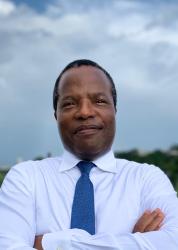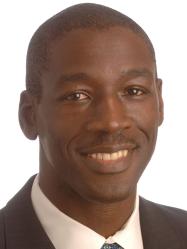2024
The CFA franc zone, which encompasses 14 countries in francophone West and Central Africa bonded by French colonial heritage and common currency, is falling behind most developing countries in terms of per capita growth, private sector competitiveness, governance, human development, and poverty reduction. Such challenges have been exacerbated by recent increased external shocks such as COVID-19, climate change, and internal demographic pressures. Geopolitical conflicts, especially in the Sahel and Central Africa, have also accelerated in recent years.
Given the limitations and taboos around the CFA franc, reform discussions have been on the rise: For example, the zone might benefit from an update to its macroeconomic policy framework in order to enable it to be more nimble when facing complex shocks. Currently, the fixed exchange rate system and overvalued currency diminish private sector competitiveness by effectively subsidizing imports and penalizing exports and forces adjustments to trade shocks on the fiscal side via cuts to public investment or additional debt accumulation. The current system also worsens inequality between urban elites and rural poor by constraining incentives for commercial agriculture. Finally, since the monetary policy is fixed, the CFA countries face credit constraints and are unable to use interest rate policy to stimulate small and medium enterprise development.
On September 28, 2022, the Brookings Africa Growth Initiative hosted a discussion on the new book “The CFA Franc Zone: Economic Development and the Post-COVID Recovery,” with author Ali Zafar. In his book, Zafar surveys the history and the complex political economy of the zone and the roles of the trifecta of key players—the CFA francophone governments, France, and the International Monetary Fund—in the current setup, as well as proposes a reform of the exchange rate and macroeconomic architecture for both West and Central Africa. Panelists explored policy options for CFA franc countries in these complex times, including effective responses to recent macroeconomic shocks, exchange rate options, and a roadmap to revamped fiscal and monetary policy framework for these countries to address development challenges.
Agenda
-
September 28
-
Presentation
 Ali Zafar Economic Advisor & Head of Development Policy Research Hub - United Nations Development Program @zafarglobal
Ali Zafar Economic Advisor & Head of Development Policy Research Hub - United Nations Development Program @zafarglobal -
Panel
Author
 Ali Zafar Economic Advisor & Head of Development Policy Research Hub - United Nations Development Program @zafarglobal
Ali Zafar Economic Advisor & Head of Development Policy Research Hub - United Nations Development Program @zafarglobalModerator
 Aloysius Uche Ordu Director - Africa Growth Initiative, Senior Fellow - Global Economy and Development, Africa Growth Initiative @AloysiusOrdu
Aloysius Uche Ordu Director - Africa Growth Initiative, Senior Fellow - Global Economy and Development, Africa Growth Initiative @AloysiusOrdu Raymond Gilpin Chief Economist and Head of Strategy - Regional Bureau of Africa, United Nations Development Program @raymondgilpin
Raymond Gilpin Chief Economist and Head of Strategy - Regional Bureau of Africa, United Nations Development Program @raymondgilpinPanelist
 Christina Laskaridis Lecturer (Assistant Professor) in Economics - School of Social Sciences and Global Studies, Open University, UK @ChristinaLaska1
Christina Laskaridis Lecturer (Assistant Professor) in Economics - School of Social Sciences and Global Studies, Open University, UK @ChristinaLaska1 John Asafu-Adjaye Senior Fellow - ACET
John Asafu-Adjaye Senior Fellow - ACET
-

